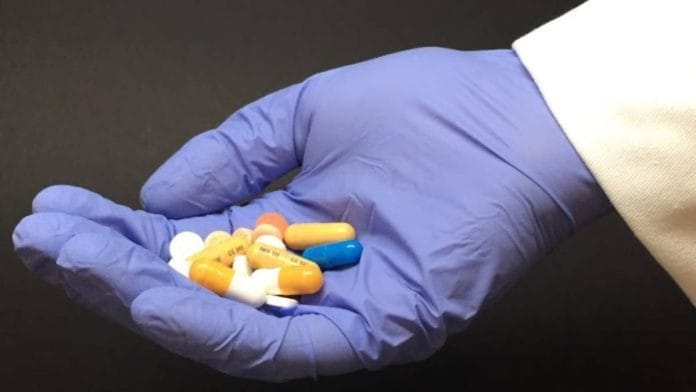New Delhi: In a move aimed at facilitating faster roll out of generic drugs in the country and easing clinical research of investigational therapies for drugmakers, the Union health ministry is set to amend the New Drugs and Clinical Trial Rules, 2019.
The proposed amendment, according to a gazette notification issued last week, will allow pharmaceutical companies to start clinical trials of most experimental drugs or conduct comparative studies of generic formulations with innovative products by just intimating the apex drug regulator, instead of obtaining licences.
“This initiative underscores the government’s commitment to ongoing regulatory reforms in the pharmaceutical sector,” the ministry said in a statement Wednesday.
The government notification asks for public feedback within 30 days, following which the proposed norms will be finalised.
Following the changed norms, drugmakers won’t need to apply for test licences—except for a small category of high-risk drugs—but will need to just inform the Central Drugs Standard Control Organisation (CDSCO), before starting research studies.
Also, those looking to launch generic versions of innovative products following bioavailability and bioequivalence (BA/BE) studies—that compare a generic drug to its branded counterpart to ensure they are therapeutically equivalent and safe for patients—can carry out the studies by just intimating the drug regulator.
The government said these reforms are expected to benefit stakeholders by significantly reducing the timelines for processing applications.
While on one hand the amendments will reduce the number of licence applications being submitted by about half, they will also facilitate quicker initiation of BA/BE studies, testing and examination of drugs for research, and reduce delays in drug development and approval processes, according to the government.
The amendments have been proposed at a time when the global pharmaceutical industry is approaching a $236 billion patent cliff, or loss of revenue due to patent expiration, between 2025 and 2030, according to a report by consultancy firm E&Y released this week.
Some of the mega-selling drugs in the list include global blockbusters such as anti-rheumatic drug Humira, anti-cancer drugs Keytruda, Opdivo, Revlimid and Avastin and anti-diabetic and obesity drugs semaglutide, Januvia and Trulicity.
Industry insiders describe the government’s move as a “removal of some of the speed-breakers for the industry”.
“It is a welcome move that will promote ease of doing business for industry players and will also help the country establish itself as a hub for clinical research of new therapies,” Viranchi Shah, a senior member and former president of Indian Drug Manufacturers’ Association (IDMA), the biggest network of generic pharmaceutical companies in the country, told ThePrint.
India, one of the biggest suppliers of generic drugs, exports 20% of the total generics used worldwide, while generic drugs also have nearly 70% share in India’s Rs 20,500 crore-strong pharmaceutical market.
Also Read: This experimental lung cancer drug outperforms blockbuster medicine Keytruda. But there’s a catch
Easing clinical trials of new drugs
The proposed amendment to the New Drugs and Clinical Trial Rules, 2019, states that the overall statutory processing time for test licence applications, even for high-risk category drugs where permission will be required to carry out clinical trials, will be reduced from 90 days to 45 days.
“It forms part of the broader efforts toward ‘Ease of Doing Business’ to promote the growth of the Indian pharma industry and align domestic regulations with global best practices,” the notification says.
It adds that the steps are expected to increase the attractiveness of India for clinical research, thereby strengthening India’s position as a global hub for pharmaceutical research and development.
Moreover, the government said the amendments will enable the CDSCO to optimise the deployment of its human resources, thereby enhancing the efficiency and effectiveness of regulatory oversight.
Scientific assessments show that while India accounts for nearly 20% of the global population, only 1·5% of global clinical trials are conducted in the country.
Indian innovators often pursue their early clinical development overseas, and international pharmaceutical giants are reluctant to engage with collaborators from India for early phase clinical development, it has been noted.
Further, phase 1 clinical trials, where a drug’s safety is assessed through in-human studies, are particularly limited in the country owing to low technological innovation and low clinical research capacity.
“Against this background, it is significant that the government is trying to introduce a clinical trial-friendly environment for drugmakers as we try to move up the value chain and focus on innovation in the pharma sector,” Shah said.
(Edited by Nida Fatima Siddiqui)
Also Read: Blockbuster semaglutide set to go off patent, Indian pharma sees a multi-billion-dollar opportunity






